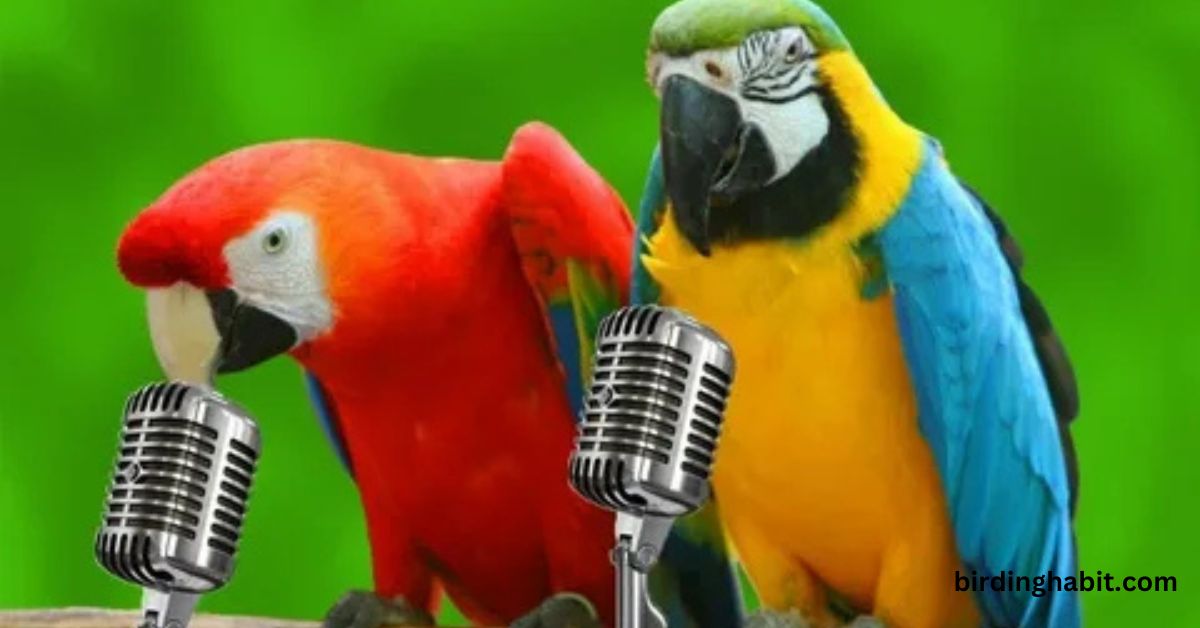Parrot birds have long captivated humans with their vibrant colors, charming personalities, and remarkable ability to mimic human speech.
However, their intelligence goes far beyond mere mimicry. Parrots, members of the order Psittaciformes, are often regarded as one of the most intelligent groups of animals, exhibiting cognitive abilities that rival those of some primates.
In this article, we will explore the various factors that contribute to the exceptional intelligence of parrots.
1. Advanced Communication Skills
One of the most notable features of parrot intelligence is their advanced communication abilities.
Parrots are known for their remarkable capacity to imitate sounds, including human speech.
This ability to mimic is not just about repetition but often involves contextual understanding.
Many parrots learn to associate specific sounds or words with particular actions or objects, demonstrating a level of cognitive function beyond simple mimicry.
For example, an African Grey Parrot named Alex, studied by Dr. Irene Pepperberg, was able to understand concepts like “same” and “different,” count objects, and even understand the concept of zero.
Alex’s ability to understand and respond to questions showed that parrots can grasp complex ideas, making them exceptional communicators in the animal kingdom.
2. Problem-Solving and Tool Use
Parrots exhibit impressive problem-solving skills that are a clear sign of intelligence. In the wild, many species of parrots use tools to help them obtain food.
For example, the Kea, a species of parrot from New Zealand, has been observed using sticks and leaves to extract food from difficult-to-reach places.
This behavior indicates a high level of cognitive flexibility, as the birds must plan and execute their actions based on environmental cues.
In laboratory settings, parrots have demonstrated the ability to solve puzzles and tasks that require memory, reasoning, and planning.
Studies have shown that parrots can understand cause-and-effect relationships, figure out how to open locks, and even perform tasks that involve multiple steps—abilities that are typically associated with higher-order intelligence in animals.
3. Social Learning
Parrots are highly social birds, and much of their intelligence comes from their ability to learn from one another.
Social learning, or the ability to observe and mimic behaviors, is a crucial aspect of their cognitive development.
Parrots, particularly those in the wild, learn important survival skills by observing and interacting with other members of their flock.
This social learning is not limited to survival skills—it extends to complex tasks as well.
In studies of captive parrots, researchers have noted that young birds often learn by observing older birds, which allows them to adapt quickly to new challenges and environments.
This social structure fosters an environment where intelligence is passed down and refined within a community.

4. Memory and Cognitive Flexibility
Memory plays a key role in parrot intelligence. Parrots have exceptional long-term memory, which allows them to remember individuals, locations, and past experiences.
This is crucial for both survival in the wild and their ability to form relationships with human caregivers in captivity.
Moreover, parrots exhibit remarkable cognitive flexibility, the ability to adapt their behavior in response to changing circumstances.
This skill is important for survival, as it allows parrots to adjust their strategies when facing new challenges, such as finding food or navigating through unfamiliar environments.
5. Emotional Intelligence
Parrots also display a level of emotional intelligence that enhances their overall cognitive abilities.
These birds form strong bonds with their mates, flock members, and even human companions, exhibiting behaviors that suggest empathy and emotional awareness.
Parrots are known to be capable of experiencing a range of emotions, including joy, fear, frustration, and affection, and they often express these emotions through vocalizations and body language.
Their emotional intelligence allows them to navigate social situations effectively, whether they are communicating with other birds or humans.
Parrots’ ability to understand emotional cues and respond to them appropriately is another indicator of their intellectual complexity.
6. Self-Awareness
Self-awareness is a hallmark of intelligence, and recent studies suggest that some parrots possess this ability.
In mirror test experiments, which assess whether an animal can recognize itself in a mirror, parrots such as the African Grey Parrot have shown signs of self-recognition.
This is a significant cognitive achievement, as it indicates that parrots are aware of their own existence and can reflect on their actions.
This level of self-awareness allows parrots to engage in complex social interactions and adapt their behavior based on their understanding of themselves and their surroundings.
Conclusion
Parrots are undoubtedly among the most intelligent animals on the planet. Their advanced communication skills, problem-solving abilities, social learning, memory, emotional intelligence, and self-awareness combine to create a species capable of impressive cognitive feats.
These traits not only make parrots fascinating to study but also endear them to people worldwide as companions and intellectual equals in many ways.
By understanding the factors that contribute to parrot intelligence, we gain a deeper appreciation for these remarkable birds and their unique place in the animal kingdom.
Parrots not only demonstrate impressive tool use and adaptability in their environment, but they also show emotional awareness, empathy, and even self-recognition.
These traits highlight their intellectual capabilities and underscore their place among the most intelligent species in the animal kingdom.
Whether in the wild or as companions, parrots continue to fascinate and inspire us with their extraordinary minds, offering valuable insights into the nature of animal intelligence.


